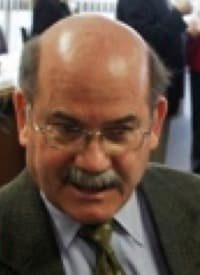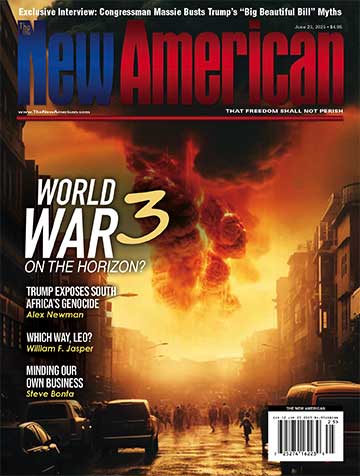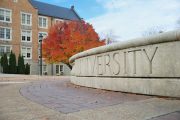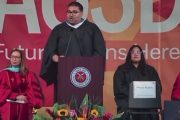
The Texas State Board of Education (SBOE) is embroiled in a battle over textbook content that, media reports claim, could dictate public school curricula nationwide. As the single largest textbook purchaser in the country, Texas is a major decision-maker regarding content of books available on the market, since publishers naturally cater to their most lucrative client. Republicans on the SBOE have made headlines in recent months overturning what they call a “subtle trend” toward liberalism and negativity about America in the high school social studies curriculum.
At the center of the controversy is Dr. Don McLeroy, a dentist from Bryan, Texas, who has served on the board since 1998. Texas Governor Rick Perry appointed McLeroy chair of SBOE in 2007 for a two-year term. He narrowly lost his re-election bid this year to Democrat Robert Ratliff by a 0.8 percent margin.
Dr. McLeroy spent time with The New American this week to give an inside look at the battle SBOE is waging for Texas school children and what his plans and expectations are for the future. In his opinion, the most important change SBOE made is to institute a central theme that America is unique and to educate youth about what makes America special. “The thing that scares me the most is I see our country so divided right now. Vice President Biden recently said, ‘We’re charting a fundamentally different course for our country,’ and we [on the SBOE] have an obligation to Texas students to make sure they understand the original principles upon which America was founded.”
He said most criticism of SBOE decisions is uninformed and based on out-of-context news reports, mainly those exaggerating the board’s treatment of religious liberty. He blames the liberal media for “looking at us Christian conservatives and assuming the worst.” McLeroy laments, “It’s embarrassing to see all these academics signing letters of protest who haven’t even taken the time to look at what we’re doing. It’s true that we are challenging the leftist ideology, but they refuse to consider things objectively. They criticize us without even reading the actual changes.”
The changes McLeroy references are available on the Texas Education Agency (TEA) website in proposed revisions to the Texas Essential Knowledge and Skills (TEKS) for Social Studies. He offered a case in point of media criticism over SBOE’s removal of the term “Enlightenment” from reference to influential writers and the impact of that era on society. The changes, says McLeroy, had nothing to do with removing reference to the Enlightenment era but rather with practical edits made in an effort to delete unnecessary repetition from the document. In fact, the term was not removed but relocated, a fact most media reports fallaciously ignore. (McLeroy points out anything included in TEKS is magnified in the classroom. The guidelines do not provide options. Rather, they list topics teachers are required to explain. So the Enlightenment era, included in both the world history and U.S. government sections, will certainly be covered.)
Critics also blast SBOE for removing Thomas Jefferson from the list of Enlightenment philosophers students must study. McLeroy contends, “We’ve increased Jefferson’s presence in these standards,” pointing out the addition of “Celebrate Freedom Week,” an annual observance intended to highlight the “intent, meaning and importance” of the founding documents with particular emphasis on Jefferson’s Declaration of Independence.
McLeroy points out Jefferson’s writings dominate the American history and U.S. government sections of TEKS, and though he was highly influenced by Enlightenment philosophers, he was not a major part of that era. McLeroy also noted TEA Commissioner Robert Scott had his staff research all other state education standards. They found Jefferson included as an Enlightenment philosopher by only New Jersey; not even Virginia mentions him in that period. “Our opponents are trying to make hay out of Jefferson, but in practice they are the ones trying to get rid of him,” McLeroy said. “It is ironic they are the ones rejecting his ideas of limited government.”
As to allegations SBOE has deemphasized religious liberty, McLeroy counters the board has made sure school children will understand the Constitution assures citizens there will be no established state religion. “How does that deemphasize religious freedom?” he asks. He pointed out further hypocrisy on the part of the Texas state senate, which rejected Governor Perry’s reappointment of McLeroy as chair of SBOE in 2009. “I didn’t get confirmed by the Texas senate because of attacks on my religious beliefs. They are hypocrites,” he opined.
McLeroy says though SBOE is accused of adding a “right-wing ideology” to textbooks, “we’ve added balance to the standards and removed bias. For example, we added the conservative resurgence of the 1980s as a distinct period along with the Progressive Era, the New Deal, the Great Society. From the left, they look at it as bias. Really, it’s just a balance between big government and limited government.”
One change McLeroy said he was shocked the media almost completely ignored was the history requirement to “explain how Arab rejection of the State of Israel has led to ongoing conflict.” He said even the Arabic news service Al Jazeera interviewed him without mention of what he considers a crucial point.
He is also proud of the addition of a requirement to analyze the unintended consequences of government actions such as the Great Society, affirmative action, and Title IX. He said the destruction of the black family is an important issue for him, and he intends to propose an additional amendment to include the eugenics movement in TEKS before a final vote on the new standards in May.
McLeroy is no stranger to controversy. Every year SBOE revises a particular subject curriculum, outlining guidelines to which school districts must adhere in purchasing teaching materials with state money. McLeroy considers his most important contributions, besides improvements to the social studies curriculum, as changes to the science and English curricula. “Science was amazing. We hit a grand-slam there — pitched a no-hit shut out.” He said the new standards give students the opportunity to learn not only how things work (the effect) but also why they work (the cause). The guidelines allow students to question evolutionary claims on a scientific basis.
Changes to the English curriculum dealt with a clash between traditional and progressive approaches. McLeroy said modern teaching strategies are learner-centered, but the board reformed this by returning to a teacher-centered, traditional approach. He said one of the new rules specifies children will learn how to identify moral themes as lessons in well-known fables such as “The Little Engine that Could.” Coupled with that, focus was taken off “reading comprehension strategies” and redirected to “content knowledge.” He explained the difference by citing the book The Knowledge Deficit by E.D. Hirsch who described repetitive reading comprehension strategies as generating a “cognitive wasteland” and recommended literature should teach science, history and other important topics. “We were losing out on knowledge for the sake of strategies,” said McLeroy. Quoting College Station teacher Judy Sanders, he said the new standards will ensure “rich literature with strong vocabulary teaching timeless truths.”
Though the media derided SBOE’s changes, most school teachers applaud them, and McLeroy points out prior TEKS English standards were “pitiful,” with a difference of only three words extending from the 4th through 8th grade guidelines. He also cited a February 24, 2009 Boston Globe editorial describing a similar situation in New England. After Massachusetts adopted traditional reforms, students now “routinely outperform their national counterparts and perform on a par with the best international students, including those in Japan and Singapore.” Following that success, Connecticut made similar changes to its curriculum.
McLeroy predicts related improvements in Texas achievement test scores. However, with his upcoming departure and that of fellow board member Cynthia Dunbar, he says the solid conservative contingent has lost two seats on the 15-member panel. He doubts the remaining five strong members will be able to continue their track record of restoring balance to Texas standards.
So what’s next for this education crusader after his term expires in December 2010? “I’ve been on the board for 12 years and have learned so much. I have focused on education and have much to contribute,” he reflects. “I may write a book. I would like to go around the state to explain what the science standards say and how they can challenge evolutionary ideas.” His own two sons graduated from the Texas public school system years ago. His purpose in serving now is to give Texas children, especially the disadvantaged, a chance to learn without impediments of liberal censorship. He believes the purpose of education is not merely to generate “healthy, productive workers” but to train the mind with knowledge and skills — to teach children how to think for themselves as “self-governing creatures of God.”
Photo of Don McLeroy: AP Images





